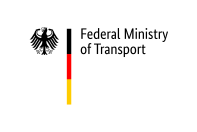BG Verkehr / Dienststelle Schiffssicherheit
Abteilung Maschine
Brandstwiete 1
20457 Hamburg

Holger Steinbock
Phone: +49 40 36137-217
Fax: +49 40 36137-204
Mail: maschine@bg-verkehr.de

Jörg Heuckeroth
Phone: +49 40 36137-231
Fax: +49 40 36137-204
Mobile: +49 171 50 57 038
Mail: maschine@bg-verkehr.de
Bundesamt für Seeschifffahrt und Hydrographie
Referat S15 - Umweltschutz im Seeverkehr
Bernhard-Nocht-Straße 78
20359 Hamburg

Katrin Ewert
Phone: +49 40 3190-71500
Fax: +49 40 3190-5000
Mail: marpol@bsh.de
Ship's sewage and garbage (MARPOL Annex IV-V)
- No discharge of untreated ship's sewage into the sea (MARPOL Annex IV)
- Ship's sewage and the Baltic Sea Special Area
- Ship's garbage (MARPOL Annex V)
- Delivery of waste in ports (Directive (EU) 2019/883)
- Reporting of inadequate reception facilities
No discharge of untreated ship's sewage into the sea (MARPOL Annex IV)
According to Annex IV of the MARPOL Convention, discharging ship's sewage is generally prohibited. Exceptions are only applicable in compliance with Regulation 11 of MARPOL Annex IV. In general, a differentiation is made between passenger ships and other types of ships and whether or not the ship is located in a sewage special area. For example, in principle, ships other than passenger ships may discharge ship's sewage
- if it was previously treated in a sewage treatment plant,
- if it was treated with a sewage comminuting and disinfecting system and the ship is not less than 3 nautical miles away from the nearest land, or
- if it is discharged from a holding tank approved by the administration with a moderate rate of discharge and the ship is en route with a minimum speed of 4 knots and not less than 12 nautical miles from the nearest land.
Further information is given on the website of the Federal Maritime and Hydrographic Agency (BSH).
Ship's sewage includes drainage from toilets, sanitary areas or rooms with living animals (so called black water) as well as other waste waters mixed with these drainages.
Annex IV of the MARPOL Convention applies to all ships on international voyages with a size of 400 GT or more, or such ships with less than 400 GT but which are approved for more than 15 persons (crew and passengers) on board. Even though Annex IV does not apply to recreational craft, the provisions of the German "See-Umweltverhaltensverordnung", section 9 on toilet sewage, apply.
The Federal Maritime and Hydrographic Agency (BSH) inflicts penalties for infringements of the MARPOL Convention in German maritime waters and the German Exclusive Economic Zone as well as by German-flagged ships as administrative offences in accordance with the Federal "See-Umweltverhaltensverordnung" (ordinance on maritime environmental conduct) provided they do not fall under criminal law.
The Ship Safety Division of the BG Verkehr enforces the MARPOL requirements on German-flagged ships. Its surveyors and the surveyors of classification societies inspect the ship structure, equipment and documentation on the ship in accordance with Annex IV of the Convention. If all provisions are met, the Ship Safety Division issues the "International Sewage Pollution Prevention Certificate" (ISPP).

Ship's sewage and the Baltic Sea Special Area
The Baltic Sea is a special area for the discharge of sewage into the sea in accordance with MARPOL Annex IV. In association with this, stricter discharge limits for sewage apply for all passenger ships since 1 June 2021. These stricter provisions do not apply to cargo ships traveling in the Baltic Sea.
The stricter discharge limits for the special area can be achieved with the installation of advanced waste water treatment plants (AWWTP). The discharge limits for these plants (phosphorus: max 1.0 mg/l or 80 per cent reduction, nitrogen: max 20 mg/l or 70 per cent reduction) are similar to those for land-based municipal treatment plants and significantly reduce the nutrient input into the Baltic Sea.
Passenger ships can also discharge their sewage into reception facilities in all larger Baltic Sea ports. Without this environmentally friendly discharge possibility for sewage at port reception facilities, the International Maritime Organization IMO could not have declared the Baltic Sea a special area.
Ship's garbage (MARPOL Annex V)
The pollution of the seas and the endangerment of the marine animal world by garbage, especially plastic garbage, is a significant environmental issue. Annex V of the MARPOL Convention contains detailed regulations for the management of garbage on board. In general, ships must not discharge garbage into the sea. Exceptions are:
- food wastes,
- cargo residues that are classed as non-harmful to the marine environment,
- cleaning agents and additives contained in cargo hold, deck and external wash water if they are not harmful to the marine environment.
This garbage may only be discharged under strictly defined conditions outside of special areas and Arctic waters if the ship is en route.
In special areas according to MARPOL Annex V (for example the North and Baltic Sea), in Arctic waters and for swimming platforms, stricter provisions apply. For ships with special cargo like living animals or dry bulk cargoes, Annex V and its associated guidelines contain different requirements for the discharge of e.g. cargo residues in wash water.
The IMO advises to maintain an efficient garbage management on board and, subsequently, a discharge at an appropriate reception facility in a port. In doing so, the shipping companies must also consider the applicable national and local provisions regarding garbage disposal.
Further information on the restrictions for the discharging of garbage into the sea in accordance with MARPOL Annex V are given on the website of the Federal Maritime and Hydrographic Agency (BSH).
In accordance with 10.3 of MARPOL Annex V the following applies as of 01 May 2024: Any ship engaged in international voyages of the size 100 GT (previously 400 GT) or more or approved for 15 or more persons (passengers and crew) has to maintain a garbage record book. Any fixed or floating platform also has to maintain a garbage record book.
EU regulates delivery of ship's garbage to ports
In addition to the International Maritime Organization (IMO), the European Union (EU) requires that ship and port operators duly dispose of the garbage onshore. Directive (EU) 2019/883 on port reception facilities for the delivery of waste from ships (PRF Directive) contains detailed requirements for EU ports among other things on:
- Port reception facilities for ship's waste,
- waste reception and handling plans in ports,
- advance waste notification and details of the delivery of waste from ships, and
- costs as well as inspections of ships.
According to the Directive, EU port states must provide enough port reception facilities and inform ship operators about them.
Masters of sea-going vessels in EU ports are obliged to dispose of all ship's waste prior to leaving the port – unless there is enough storage capacity on board for the waste accrued so far and the waste that is anticipated to be produced on the voyage to the next port. Details on the calculation of storage capacity is given in the Implementing Regulation (EU) 2022/89.
Operators of port reception facilities or the competent port authorities issue a waste delivery receipt on the proper waste delivery at port to the master of the respective vessel. The information given in these receipts have to be carried on board for at least 2 years. The ship operator, the ship agent or the master have to report the data of the waste delivery receipt together with other mandatory information for calling at a port to the reporting portal (National Single Window/NSW) of the respective port.
The Directive applies to all sea-going ships calling at or operating in a port of an EU member state irrespective of their flag. It contains provisions for all types of ship's waste under Annexes I, II, IV, V and VI of the MARPOL Convention including cargo residues.
Further information can be found in the ISM Circular 04/2021
Reporting inadequate reception facilities
Waste generated on board ships - including inter alia sludge, sewage, general garbage - are either disposed of on board e.g. by incineration or discharged to a reception facility at a port.
If ships encounter difficulties discharging ship-generated waste under MARPOL Annexes I-VI to port reception facilities in a German maritime port, the ship management should report this with this format by sending it to marpol@bsh.de. These notifications can effectively reduce the environmental impact caused by inadequate disposal. The Federal Maritimen and Hydrographic Agency forwards the information to the International Maritime Organization IMO and the Helsinki Commission, if appropriate.

